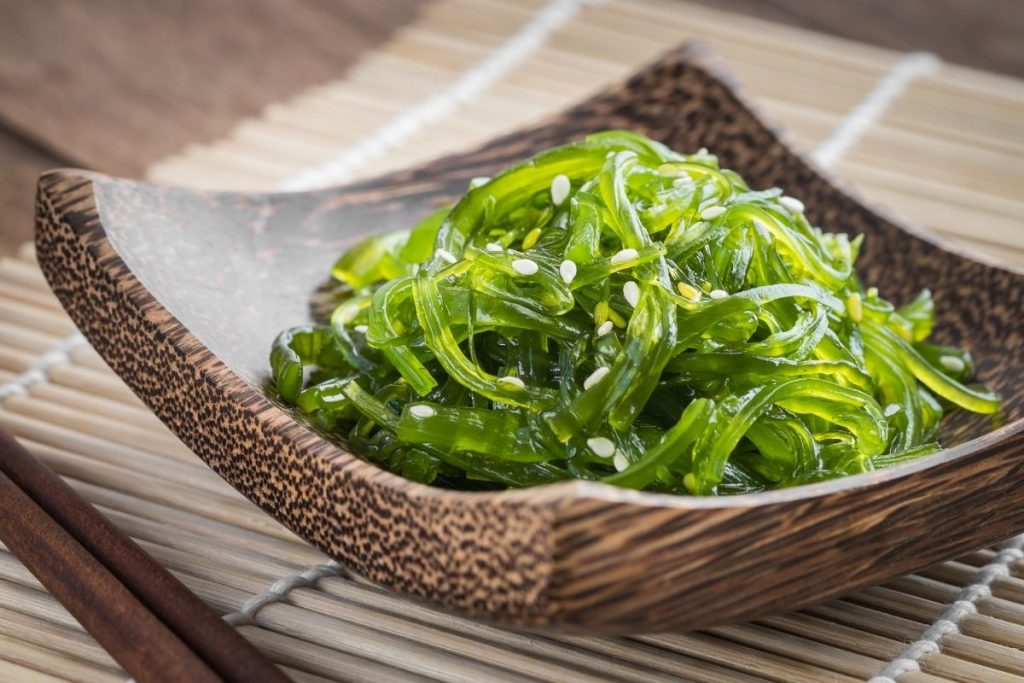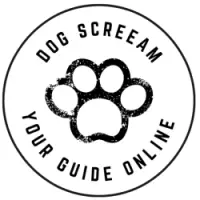We all know that we should all be eating healthy food. One of the healthiest food out there is seaweed. That’s why it is also called a superfood. They are also called sea vegetables. These sea vegetables are very nutritious without adding a lot of calories to your diet. We can also see it being used as skincare, as a fertilizer, as packaging, for industrial products, and some use to build roofs on houses. It is now very popular because of its benefits.

Is it safe for dogs to eat seaweed?
There are different kinds of seaweeds out there like Nori, Kelp, Wakame, Kombu, and a lot more. We usually use this for wrapping sushi and topping it on rice or just eating it plain. Let us say you went to a convenience store or a grocery and bought a Nori wrapper to munch on while watching your favorite TV show, then your dog wag its tail and is looking at you with puppy eyes asking you to give him some of the delicious smelling wrappers you are eating. Now, you are torn between giving some to your dog and dismissing the look he is giving you. The question in your brain now is, can your dog have seaweed?
Yes, they can! Seaweeds can be beneficial not only to humans but also to your dog when given correctly. To be more accurate, it should be given cautiously. Remember that you should always inform your veterinarian if you are adding new supplements or food to your pet’s diet. You also need to make sure that it is unseasoned like no salt, no garlic, or onions. Even though seaweeds taste salty, it actually has low sodium.
Let us look at all the nutrients that seaweeds have
First, it is packed with fiber and rich in antioxidants. It is also said to have Iron, Magnesium, Iodine, Omega 3 and 6 fatty acids, prebiotics, minerals, and vitamins.
As seaweeds are packed with nutrients, it is now very beneficial to our hairy friends. Here are some of the benefits that your dog can get when you give them seaweed as a supplement or as a treat:
- It is easy to digest because it has less cellulose to enclose its wall
- The skin and coat of your dogs will also be healthier because it has omega 3 and 6 fatty acids and antioxidants
- It may also help with decreasing tartar and plaques on your dog’s teeth
- And because it has omega 3 fatty acids, it is also good for your dog’s heart
- Iodine is also present in seaweed so adding it to your dog’s diet will help with thyroid function
- Some supplements also claim that it improves energy levels and helps boosts the immune system
- The flavor coming from seaweed will also help with your dog’s appetite especially if your dog is a picky eater
- It also has anti-inflammatory properties making it one of the best supplements for dogs with dry itchy skin and for those with allergies
Pros and cons feeding your dog seaweed
If there are benefits to giving seaweed to your dogs, then there are also disadvantages. I have listed most of them below:
- As stated in the benefits section, it may help your dog’s appetite if your dog is a picky eater but it can also have the opposite effect; it can make him love or hate the taste
- Once your dog is familiar with the taste, your dog might eat wild seaweed found on the beach which is a big no-no because critters
- If your dog eats a sun-dried wild seaweed found on the beach, it will soak up liquids inside your dog’s stomach that may cause stomach blockages and may lead to death
- Getting too much iodine is also not good for your dog because it may cause hyperthyroidism
- There are also pollutants and waste found on the beach that may be caught in wild seaweed and may end up in your dog’s stomach
- If you are also giving your dog a seasoned seaweed then it may lead to other complications such as salt poisoning
Once you have decided that you are ready to add seaweed to your dog’s diet, you can now proceed to the “how”. So now you can sprinkle seaweed supplements on top of your dog’s food. The store-bought Nori wrapper is also fine, just make sure that there’s no added seasoning and you can now enjoy eating Nori wrapper with your dog. A plain unseasoned seaweed will do. You also have to make sure that you do not give a lot and just feed it in small amounts. Be very careful not to give whole seaweed to your dog. Puppies should also only be given at 8 weeks old and up. But after you give your dog seaweed, make sure that you will monitor your dog’s reaction to it and inform your veterinarian if you see any weird effects on your dog’s body or stool.
If you also go to the beach with your dogs, make sure that they will not eat any seaweeds on the beach whether dried or fresh as it might cause some serious health issues to your dogs like stomach blockages, they might eat jellyfish or critters hiding in the seaweed or it might also lead to salt poisoning. Once your dog developed a taste for seaweed, they will think that all seaweed that has the same smell as the one they are accustomed to is safe to eat. Symptoms that you can look out for when you think your dog ingested a lot of wild seaweeds are vomiting, diarrhea, loss of appetite, or being lethargic.
I can say that adding seaweed to your dog’s diet is a great thing as long as you follow your veterinarian’s advice and make sure to know first the history of your dog as they are also similar to humans who needs to be screened for their histories before taking in new supplements or food. You should immediately call your veterinarian if you think your dog consumed too much seaweed or ate wild seaweed on the beach.
